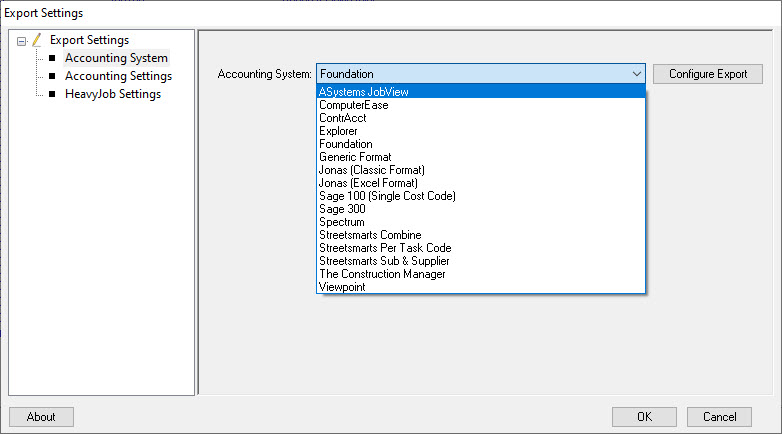Advice for Growing Construction Companies
Equipment, Non-HeavyBid Stuff, Uncategorized
This month marks 10 years since my return to HCSS as a software trainer. In my travels visiting over 1,000 companies, I came in contact with many that are experiencing rapid growth. They were once under $10 million a year in revenue and now are pushing $20, $30 and even $40 million a year. I see companies that expand successfully and then I see some that are heading into financial rough waters. Here is my advice to these companies:
- Top of the list: If you are using QuickBooks for accounting it is recommended that you start the move to a more formal construction accounting software platform. The longer the delay the more painful the change will be. Not only will construction accounting software easily do Certified Payroll reports but it establishes your accounting history that QuickBooks just can’t do. Quickbooks is great for new companies but as the company grows it requires more and more effort by most likely a third party CPA Accounting Firm to do yearly tax reporting. I have never seen any company (Utility/Heavy Civil) successfully use Quickbooks (for Construction) for job costs. Never. To see a list of accounting software that HCSS exports a budget to I have provided a list at the end of this blog. Now just because it is listed does not need it is worthy of consideration. For example, Sage 100 would not be on my list of candidates for consideration as Sage 300 (Timberline) is a much better choice.
- Accounting is not a necessary evil. If you are owner or hold a management position then you need to understand the fundamentals of accounting at least at its most basic level. Treat it like a checkbook and not use it as an information tool will put the company at financial peril.
- Hire a good CPA that can balance the quirks of a construction company with accounting reporting and business advice. The number one reason a construction company goes out of business is a lack of business experience. The right CPA can fill in the gaps.
- Put a priority on estimating. This might be somewhat controversial but many times owners of growing companies think anyone can be an estimator. A good estimator has a unique skill-set and is going to be one of the highest paid positions in a company. I have seen companies try to use a superintendent as an estimator and typically it doesn’t work out. You can identify sharp field people for the role but they have to have critical math and communication skills required to be an estimator so be prepared to expand his or her education to meet the requirements.
- Manage time well. If your operations are nothing but a fire drill every single day it doesn’t have to be that way. As the company grows the owner cannot keep shouldering more and more responsibility. Delegation is critical. Healthy companies have healthy owners, not workaholics. I have been at companies where management sacrifices the important tasks on the altar of the immediate. Everyone is just miserable and life is just too short to not enjoy work.
- Know your overhead percentage (and its basis). Don’t mix it up with company profit.
- Equipment is one of the key components of a construction company’s lifeblood. Understand the life cycle of each piece and actually calculate what the internal charge should be for it for job costing. If there is one area that growing companies have difficulty understanding total costs this is it.
That is my list for now. Send me your opinions and ideas. My company specializes in streamlining estimating workflow for HCSS HeavyBid customers.




